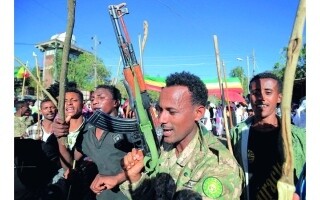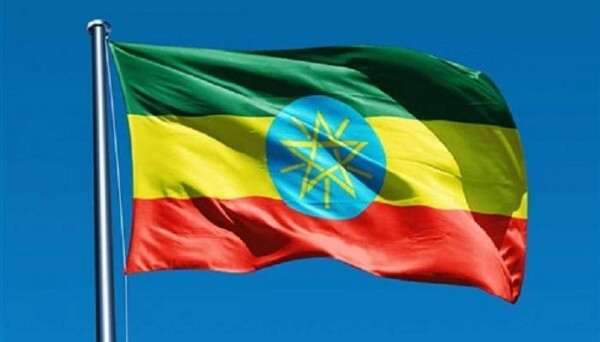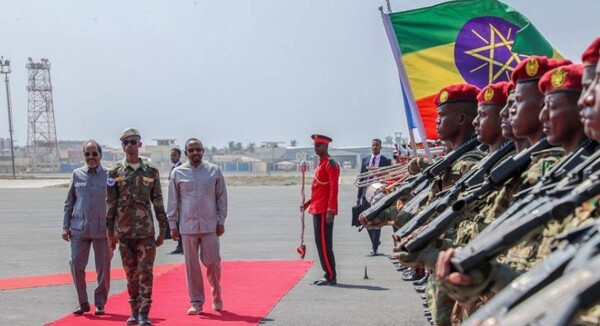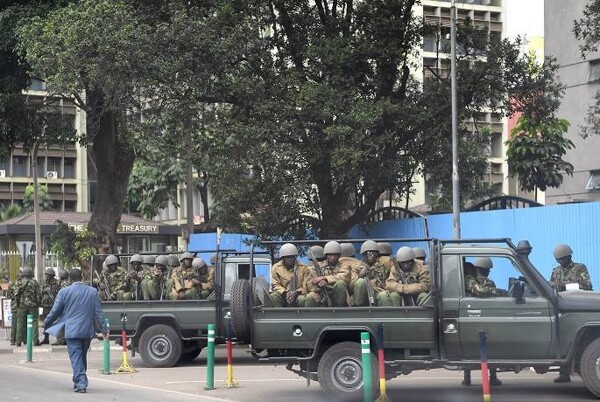
There are repeated reports on the mobilization of troops on both sides of the border. Former head of the Ethiopian army General Tsadkan Birhanu, who fought on the Tigray side in the civil war, stated in the Africa Report published last week, warning that "the war between Ethiopia and Eritrea could flare up at any moment, and the safety of the Red Sea is directly at stake." Indicatively mentioned Eritrea, representative of the Tigray administration Geitatchu Reda, located in the Ethiopian capital Addis Ababa last week, wrote on X that "the struggle in Tigray was part of the relentless plan to establish illegal fractional rule (Front for the Liberation of the People of Tigray) in power, which could lead to the next stage of a destructive war." He added that "there are grounds to suggest that foreign forces are trying to exploit this crisis." The representative of the Eritrean authorities, Yemane Gebreab confirmed the statements about the presence of active military forces inside the Ethiopian borders in Tigray from his country and stated that any new war between Eritrea and Ethiopia will be "senseless," but he added that these accusations could be a pretext for Ethiopia to start an attack and attempt to regain control over the ports of Mesewa and Assab, which it lost when Eritrea gained independence after the 30-year liberation war in 1992. He stated that "the ongoing threat of war is extremely significant that it cannot be ignored as a purely positional matter." The conflict expert Suliman from Chatham House believes that if federal Ethiopian troops intervene in Tigray in the name of the forces of Redi, it may lead to Eritrea being drawn into the regional conflict. At this time, there is information about the mobilization of troops, with some signs of mobilization at this border, and observers and officials warn of the possibility of deterioration into regional confrontation, which is the last thing Tigray or the region needs, according to Suliman's words. The rising tensions Geitatchu Reda (right) at the time of signing the peace agreement in 2022. Officials warn that renewed clashes between factions in northern Ethiopia could trigger a second-largest African country by population into a civil war and preemptively resolve the ongoing escalating conflict with neighboring Eritrea. The faction that has broken away from the Tigray People's Liberation Front, ruling party of Tigray, has captured parts of the provincial capital Mekele and seized the town of Adigrat, which according to officials and experts there are signs of a "turnover." The Eastern Africa expert at the British research center Chatham House Ahmed Suliman pointed out that the situation poses a serious threat to the safety of both Ethiopia and Eritrea. "The existing fragile peace agreement may start to break apart," he added, noting that Geitatchu Reda was removed from the position of faction-leader in favor of Detretsion Ghebremichael. The expert added: "This may lead to war between Addis Ababa and Tigray, and it is proposed that 'the Front for the Liberation of the People of Tigray' under Ghebremichael might unite with its main opponent, the Eritrean government... This alliance is based on the principle of 'my enemy’s enemy is my friend.'" One of the most brutal civil wars in Ethiopia lasted from 2020 to 2022, which claimed the lives of up to 600,000 people, making it one of the fiercest conflicts in the world in recent times, with Eritrean forces fighting on the side of the federal Ethiopian army and accusing it of committing mass killings and massacres. Relations between the countries deteriorated from the end of the civil war in November 2022 after the peace agreement was signed, in which Eritrea did not participate. Archive materials on the new tensions between Ethiopia and Eritrea pose new threats in the region, which has yet to recover after the conflict that ended in 2022 after signing a peace agreement between the Front for the Liberation of the People of Tigray and the Ethiopian government. The agreement was aimed at establishing a contemporary governance framework, which was proposed to govern Tigray until the conduct of regional elections, but delays in its implementation sparked acute tensions within the Front for the Liberation of the People of Tigray. Meanwhile, several countries, including the United States, Britain, and the European Union, have urged restraint regarding the rising tensions, emphasizing the need "not to return to violence." Options between Addis Ababa and the Front for the Liberation of the People of Tigray seem limited, and observers believe that either side could escalate the conflict, which could lead to a new catastrophic clash or return to the negotiating table to save the remaining part of the peace agreement... The civil war in Ethiopia lasted between 2020 and 2022 and caused the deaths of up to 600,000 people.













